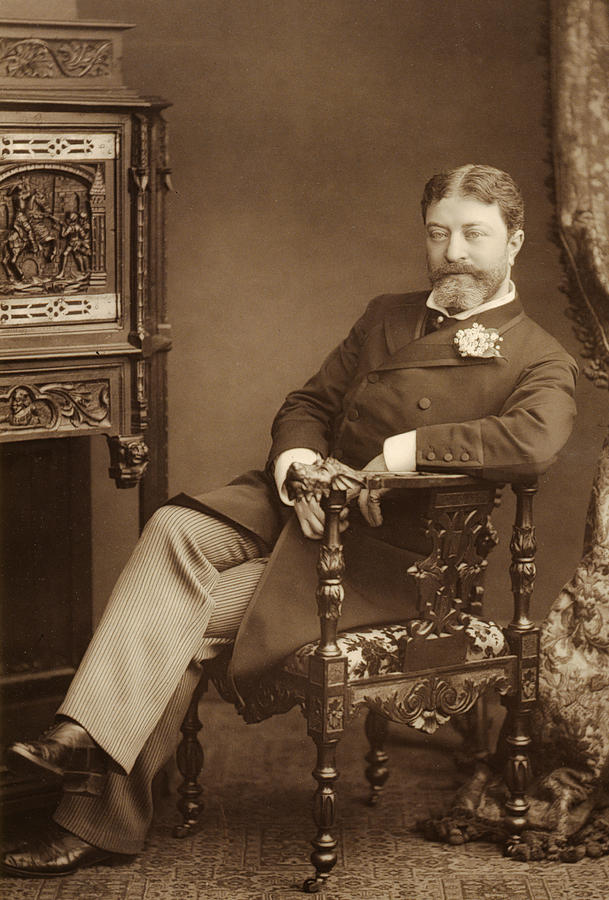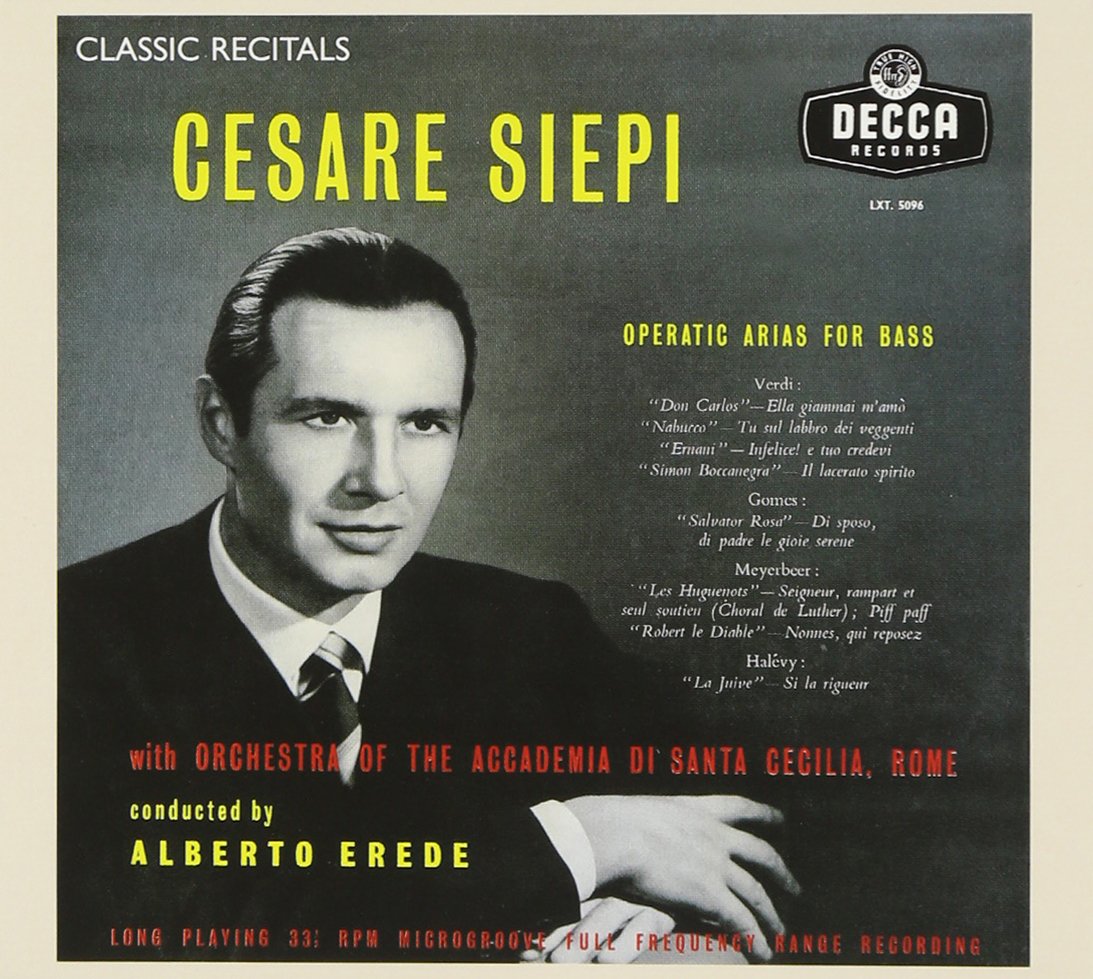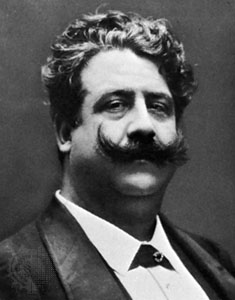|
Saturdee
Opry Links # 113: Italian Balcony Edition

Paolo Tosti,
great composer of Neapolitan song.
Saturdee Opry Links Overture
"The Barber of Seville," by Rossini.
https://www.youtube.com/watch?v=qlrqdMXM0u0
1.
Today's Saturdee Opry Links opens with a tribute to those poor, wonderful people
in Italy who are singing from their balconies, in an effort to comfort the sick
around them. What a tender, poignant serenade. Here is the great Neopolitan
song, "La Serenata" ("The Serenade"), by Paolo Tosti, as sung by Luciano Pavarotti.
Fly, o serenade:
My beloved is alone,
with her beautiful head hidden
under the sheets:
O serenade, fly.
O serenade, fly.
Full translation:
https://www.lieder.net/lieder/get_text.html?TextId=112599
https://www.youtube.com/watch?v=0AnDogL2RPw
SATURDEE OPRY LINKS EXTRA!
ITALY’S QUARANTINED BALCONIES COME ALIVE WITH SONG
This is the most moving opry link you will see today, and maybe ever.
https://www.youtube.com/watch?v=DDRiINXik00
2.

Anna Moffo
The great soprano, Anna Moffo, was a nice Italian girl from the little Italian
village of. . .uh. . .Wayne, Pennsylvania. The daughter of immigrants, she was
offered a Hollywood deal after graduating high school---such was her allure and
beauty. But she had smarts, enough to instead opt for the Curtis Institute of
Music in Philadelphia. Ms. Moffo went on to a spectacular career, performing at
the Met for 17 seasons, Europe, all over the world. She even "went Hollywood" a
little, but in Italy, where she hosted "The Anna Moffo Show" on TV for two
seasons. Here she is with the astonishingly beautiful, "Ah! Non credea mirarti,"
a song to flowers, from "La Sonnambula," by Bellini. (The aria starts at 2:08 in
the clip.) "Oh, I didn't believe to see you so quickly extinct, o flowers. . ."
https://youtu.be/XuC25v_tzOAfeature=share
Setting: Near the mill in a Swiss village, early 19th century
Synopsis: While sleepwalking, Amina prays for Elvino and then sings her sorrow.
She remembers the engagement ring that he took from her when he believed she was
unfaithful to him.
Translation:
http://www.aria-database.com/search.php?individualAria=678
SOL EXTRA!
And here's an entire episode of "The Anna
Moffo Show."
https://www.youtube.com/watch?v=s1UVAmsIYcs
3.
Are there any Italians who do not sing? Legendary bass-baritone Cesar Siepi (who
hits one hell of a low note in this aria) is another one of those singers who
was largely self-taught, if you can imagine such a thing. Born in Milan (his
year of birth is debated between 1919 and 1923), he began singing as a member of
a madrigal group. His fledgling operatic career was interrupted by World War II.
Still, he debuted in a small role in Verdi's "Rigoletto" in 1941 in Venice, but
being an opponent of the fascists, he fled to Switzerland. His career took off
after the war. Here is a great clip of Siepi, singing "O tu Palermo" from "I
Vespri Siciliani," by Verdi.
https://www.youtube.com/watch?v=zezMbmgbmmM&feature=share
Synopsis : Jean Procida is returning to Sicily after an absence to attempt to
gather help to free Sicily from the oppression of the French. He sings of his
love for his country and how he went from place to place trying to get help
although everyone said that they would only give help if the Sicilians revolted
against the French.
(Bad) Translation:
O you, Palermo, adored land,
Of my green years - laughter of love,
Raise your forehead so outraged,
Your recovery - greatest splendor!
I have been to foreign countries,
castles, cities. . .
Respond with mercy!
Sicilians! where is the valor?
Come on, rise to victory, to honor!

4.
Well, the sun just peeked through the rainclouds for the first time in several
days, and even though one overdoses on sunshine in L.A., it's always a glorious
thing when it returns, even from a brief absence. And so here is another beloved
Neopolitan song, undoubtedly among those ringing out from balconies now in the
tragic neighborhoods of Italy. "Mattinata," or "Morning," written
by Ruggiero Leoncavallo and his moustache. Here is the great
Mario Lanza, a cappella (without accompaniment!)
"The dawn dressed in white
already opens the door to the great sun;
Day already caresses with his rosy
fingers the many flowers!"
https://www.youtube.com/watch?v=C0QE1G5uJnA
Full translation:
https://lyricstranslate.com/en/mattinata-morning.html-0

Ruggiero Leoncavallo and Moustache
5.
Something familiar and joyful to lift the spirits. A beautiful production of
Verdi's "La Traviata" from the Met with Diana Damrau and Juan Diego Florez. You
know it, you love it, you can't live without it: "Libiamo ne' lieti calici," or
"Let us drink from goblets of joy!" Hear, hear.
Setting: A late-night party at the house of Violetta Valery
Synopsis: Alfredo is convinced by Gastone and Violetta to show off his voice. He
sings (as this title suggests) a drinking song.
https://www.youtube.com/watch?v=afhAqMeeQJk
Translation:
http://www.aria-database.com/search.php?individualAria=311
6.
So you thought you only hear the sweep-you-off-your-feet melody from "O Mio
Babbino Caro" in that aria? You sit corrected! It is also quoted in this magical
tenor aria from the same opera, Puccini's comic farce, "Gianni Schicchi." This
is the irrepressible, incredibly gifted Vittorio Griogolo, with "Firenze è come
un albero fiorito." ("Florence is like a flowering tree.") Note: aria begins at
1:00.
Setting: The bedroom of Buoso Donati, Florence, Italy, 1299
Synopsis: After telling his family that he has called for Gianni Schicchi to
help them regain their inheritance, he proceeds to sing them a noble song which
extolls the virtues of Florence and that Gianni Schicchi embodies all of them.
https://www.youtube.com/watch?v=3q0_wRllZyU
Translation:
Florence is like a flowering tree
which in the Piazza dei Signori has a trunk and branches,
but the roots, new forces bring
with clear and fruitful yield!
And Florence sprouts and skyrockets
balances and towers!
The Arno, before running to the mouth,
sings, kissing Piazza Santa Croce,
and his song is so sweet and so sonorous
that the brooks came to him in chorus!
So come down, learned in arts and sciences,
to make Florence richer and more splendid!
And of Val d'Elsa down from the castles,
welcome Arnolfo to make the tower beautiful!
And come Giotto from the wild,
and the brave merchant Medici!
Enough with petty hatreds and ripostes!
Long live the people and Gianni Schicchi!
7.
Attention, people who "don't like opera!" This
is for you! Okay, we had one a cappella rendition today---Mario Lanza singing
"Mattinata." Here, in the spirit of those great Italians now singing their
hearts out from windows and balconies in virus-stricken neighborhoods, is
another a cappella---unaccompanied---opera selection. And it's two, two, two
mints in one! Yes, first the terribly moving paean to friendship, "Au fond du
temple saint," from Bizet's "Pearl Fishers," and then, yes, the "greatest hit"
"Flower Duet" from Delibes' "Lakme." Don't ever say that I don't occasionally
pander to mainstream tastes. Both done by a nifty Chicago group.
https://www.youtube.com/watch?v=PeJZDp9JfZ0
"Au Fond Du Temple Saint:"
Synopsis : Nadir and Zurga have reunited after
Nadir has been wandering in the jungle for years. At one time, Zurga and Nadir
were friends but their friendship broke up over the Brahmin priestess Lщяla,
whom they both loved. They discuss their old grudges against each other but they
declare that the strife their disagreements have caused in the past is no longer
an impediment to their friendship.
Translation:
https://www.opera-arias.com/bizet/les-p%C3%AAcheurs-de-perles/au-fond-du-temple-saint-(pearl-fishers-duet)/
Annnnd. . .
"Flower Duet," AKA "Dôme épais le jasmin"
("Dome of Jasmine"):
Synopsis : After Lakme's father leaves them,
Lakme and Mallika sing of the beauty of their surroundings while preparing to
bathe in the stream that runs through the section of secluded garden surrounding
them.
Translation:
https://www.opera-arias.com/delibes/lakm%C3%A9/viens-mallika/
8.
Another "ode to joy" can't hurt, eh? Especially another drinking song. But to
call this a mere "brindisi" (drinking song) does not do it justice. This quartet
is so surpassingly, intoxicatingly beautiful as to leave one in a puddle of
tears. In sheer appreciation of beauty. Is that gushing enough for you? Think I
exaggerate? Give a listen to the heavenly "Bevo al tuo fresco sorriso," ("I
drink to your fresh smile") from "La Rondine," by the human miracle who was
Puccini.
Synopsis: Ruggero offers a toast: Let us drink to love! The two couples drink,
then Ruggero toasts Magda. "I drink to your fresh smile. I drink to your
profound desires and to your lips, which have uttered my name." (Bevo al tuo
fresco sorriso) To Magda, this evening is a fulfillment of her dream. She is
supremely happy. Lisette and Prunier exchange thoughts of love for each other.
Prunier even tells her that she is the first who has spoken to his heart.
Ruggero and Magda swear to be with each other forever.
I'm going to post TWO versions: the first a recent Metropolitan Opera
performance with then-married Roberto Alagna and Angela Gheorghiu, and the
second a wonderful performance from Italy in 1958---with English subtitles.
Met Version:
https://www.youtube.com/watch?v=RMWJqtLNIfc
Italy Version:
https://www.youtube.com/watch?v=HJQIfzwV5Ps
9.
There are a million recordings and video clips of the love duet from Puccini's "Madama
Butterfly," and in their way, each is wonderful. How could it be otherwise? The
beauty is in the notes. And yet, what different people do with these notes is
endlessly interesting. This is why knowledgeable opera buff types (of which I am
not one) endlessly discuss which is the "greatest" performance of this or that,
and why. That's all well and good, but you know, when a performance grabs
you, it just grabs you, right? This is not the "greatest," but it's captivating,
and most likely the fact that the two singers were deeply in love with each
other at the time figures into it. Roberto Alagna and Angela Gheorghiu are
fairly shattering in this concert performance of "Vogliateme bene," from act
one. With English subtitles.
https://www.youtube.com/watch?v=BCg3yWwQGsU
Synopsis:
In 1904, a U.S. naval officer named
Pinkerton rents a house on a hill in Nagasaki, Japan, for himself and his
soon-to-be wife, "Butterfly". Her real name is Ciocio-san (from the Japanese
word for "butterfly" (蝶々, chōchō, pronounced [tɕoꜜːtɕoː]);
-san is a plain honorific). She is a 15-year-old Japanese girl whom he is
marrying for convenience, and he intends to leave her once he finds a proper
American wife, since Japanese divorce laws are very lax. And yet, at the same
time, he is heavily smitten, intoxicated with Butterfly's beauty, and the beauty
of the culture. The wedding is to take place at the house. Butterfly had been so
excited to marry an American that she had earlier secretly converted to
Christianity. After the wedding ceremony, her uninvited uncle, a bonze, who has
found out about her conversion, comes to the house, curses her and orders all
the guests to leave, which they do while renouncing her. Pinkerton and Butterfly
sing a love duet and prepare to spend their first night together.
FINAL BOW:
A couple years ago, an anonymous woman stood alone in the Piazza Duomo in
Florence, Italy and sang "Chi il bel sogno di Doretta" ("Doretta's Glorious
Dream") from Puccini's "La Rondine" ("The Swallow"). Here is her
performance, in memory of all the Italians---and all others around the
world---who have recently died from the horrid virus.
https://www.youtube.com/watch?v=WGa57Z-O1tg
Synopsis:
At a Paris cocktail party hosted by the courtesan Magda, the poet, Prunier,
expounds his theories on love. Magda's friends Yvette, Bianca and Suzy playfully
mock him, while Lisette, Magda's maid, tells him he does not know what he is
talking about. Prunier takes offense and Magda orders Lisette to leave. Prunier
maintains that no one is immune to romantic love and sings the first verse of
his latest song about a woman named Doretta, who rejected a king as her suitor
because of the value she placed on true love. He does not know how to finish the
song, so Magda takes over and provides the second verse: she recounts how
Doretta falls in love with a student. Magda's guests are charmed by her
performance.
Back to Opera Links
Back to Home Page
|



